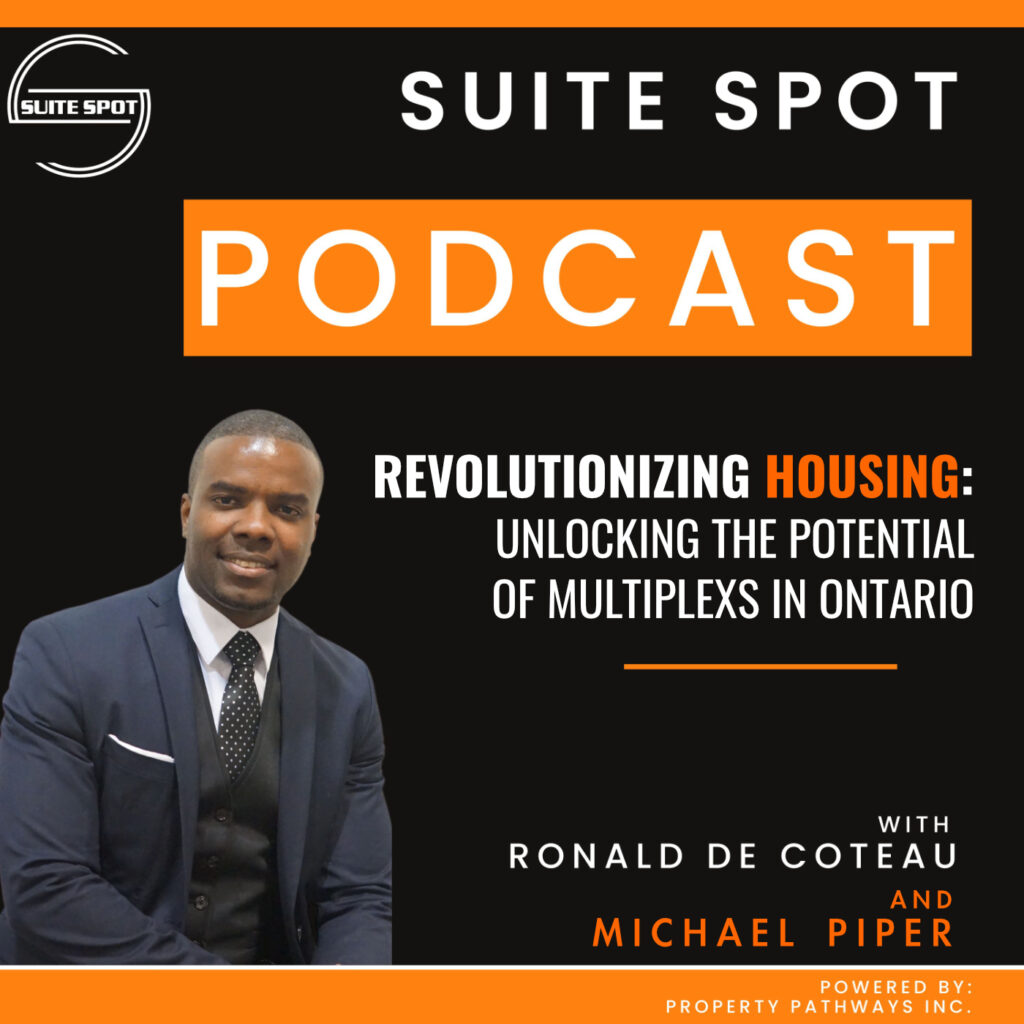
Highlights
[02:56] – The lack of equitable housing options is a looming crisis in Toronto.
[04:00] – Challenges and changes to existing zoning for different types of homes to enable multiplex conversions.
[13:56] – Making housing ownership more accessible to people at different stages of their lives.
[14:52] – Multiplex bylaws are important, but there’s also a need to provide incentives, systems, and processes that enable diverse citizens to access affordable housing options.
[17:50] – Most current financing options focus on 4-or 5-unit conversions, but more incentives should focus on the average homeowner looking to add one or two additional units.
[19:00] – Citizen Developer, a new term, coined to showcase nonprofessional homeowners interested in adding additional units to their existing homes.
[22:19 ] – Criteria for flexibility of converting different housing types into multiplexes
[25:03] – Shortcomings in previous changes in mainstream urban design and planning regulations to accommodate cost-conscious policy changes.
[26:10] – Making better and longer-lasting changes to housing policies and zoning codes that foster low-cost construction can also aid equitable housing.
[33:20] – Design conversions that support homeowners over the different stages of their lives.
[35:50] – Ideas for ownership models that cater to different kinds of people at different stages of their lives
In this episode of The Suite Spot Podcast, I had a chat with Michael Piper, the Assistant Professor at Daniels Faculty of Architecture, Landscape, and Design, about his work on analyzing contemporary urban planning policies and making changes that foster equitable housing scenarios, such as the challenges surrounding designing and planning multiplex homes.
Michael is also the Director of Master Urban Design at the University of Toronto, School Of Cities. This department specializes in evaluating and testing policies, and the processes governing urban housing design and development. Michael and his team have made considerable contributions to Toronto’s new amendments to the zoning bylaws, which now allow multiplexes throughout Ontario. At the University of Toronto, he co-founded the Tuf Lab, a research group centered on studying relationships between built-form (buildings), policies, and equitable housing.
Michael also coordinates “ReHousing,” a research project in collaboration with LGA Architectural Partners through the School of Cities, to study how diverse types of homes across Toronto can be converted to multiplexes across all regions in Toronto. Michael has also taught at Harvard’s Graduate School of Design, Syracuse University, and Columbia University, and was the 2010-11 Lefvre Fellow at the Ohio State University.
Outside of his work in Academia, Michael loves building stuff and biking across the city of Toronto. Although he has lived in several cities across the U.S., Europe, the Middle East, and now Canada, Michael is deeply passionate about the City of Toronto and the budding opportunities it provides him to participate actively in shaping housing policies and reforms.
To learn more about the awesome work, Michael and his team have done so far on the ReHousing project, visit rehousing.ca. Also subscribe to our blog to explore in-depth guides on making conversions or expanding your present property into a duplex, triplex, or multiplex according to Ontario’s new bylaw amendment.
Quotes
“Different kinds of homes offer different possibilities for creating additional units,” – Michael Piper.
“We are going to see a lot of developers building five or four units, but the average homeowner looking to find extra income to pay their mortgage would be doing one or two unit additions, and that’s where financing options should support more,” – Michael Piper.
“I love thinking about homes not as a static thing that you make but as something that changes and grows just like a family does, and the ability to think fluidly about your house is important,” – Michael Piper.
Ron Quotes
“The first step to making a conversion isn’t jumping into generating ideas about every aspect of your 200 by 50-foot space but finding answers to the questions; what is the end use of the property? And where do you see yourself in the next five years?”, – Ron De Coteau
Do you have a specific conversation project? Do you want to host Ron on your show?
